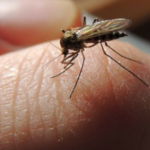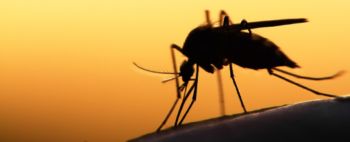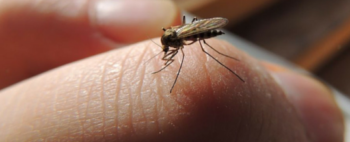The U.S. is home to 176 recognized species of mosquitoes. Chances are good you have some of the mosquito population living in your backyard.
There’s also a good chance you’ve dealt with the buzzing, annoying, biting insects when you try to spend time outdoors. The resulting itchy bites serve as a lasting reminder of the mosquito population in your yard.
Mosquitoes are more than just annoying. They can carry diseases, including the West Nile virus, which is the most common disease caused by mosquitoes in the continental U.S.
Mosquito control keeps you from itching and cuts your chances of getting West Nile or other diseases caused by mosquitoes. Using multiple methods to repel mosquitoes is often the most effective.
Keep reading to discover how to get rid of mosquitoes in your yard before they turn into a major infestation.
Clean Up Your Yard
Debris in your yard gives mosquitoes shelter and makes your space more hospitable toward the insects. Clean up your outdoor spaces to make it less friendly to mosquitoes.
Remove branches, old tires, trash, and other debris in your yard. Keep your grass trimmed regularly.
Gutters also need regular cleaning. If you let leaves and debris build up in the gutters, the rain can’t drain well. Water can pool in the gutter, which gives mosquitoes a place to lay their eggs.
Take Care of Standing Water
Standing water creates the perfect breeding ground for a mosquito infestation. It helps to understand the life cycle to know why standing water is bad.
The mosquito life cycle begins in water. Adult mosquitoes lay eggs in or near water. In dry conditions, the eggs often can last a few months.
They hatch when they’re exposed to water. The first three stages, egg, larva, and pupa, are spent in the water. It’s not until the mosquito is an adult that it flies.
You can cut down on the number of mosquitoes in your yard if you eliminate standing water. That takes away the breeding and hatching ground for future generations of mosquitoes. Even a very small collection of water can be enough for mosquitoes to thrive.
Walk around your property to spot areas where water collects. Containers, such as flower pot and saucers, can accumulate rain and water you use to irrigate your plants. Kids’ swimming pools, birdbaths, and backyard ponds are also common sources of water.
If you have a boat, RV, or similar items in your yard with a cover on them, the tarp can collect water. Anywhere the tarp curves down, the water can collect. Smooth and secure the tarp to avoid any depressions so the water rolls off instead of collecting.
Rain barrels are an eco-friendly option for your home, but they can also attract mosquitoes. Keep your barrel covered well to keep mosquitoes out.
Water can also collect in low-lying areas, such as ditches or sloped areas. Look for spots where water tends to collect after rain. Adding drainage solutions to those areas can help keep water from pooling.
Treat Birdbaths and Other Water
Some sources of water are decorative, and you don’t want to drain them. This might include birdbaths, ponds, and decorative fountains.
Changing the water in those places frequently can prevent the mosquitoes from reaching maturity. Put fresh water in at least once per week.
Another option is to treat the water with bacillus thuringiensis israelensis (BTI). It’s bacteria that kills the mosquito larvae without harming other living organisms. It also kills blackfly and fungus gnat larvae.
BTI is naturally occurring and isn’t harmful to humans or animals. It’s also approved for use in organic farming.
This mosquito-killing bacteria comes in granule form so you can sprinkle over areas such as gutters, flower pots, and other areas where water might collect. You can also get disks that float on the surface of open water.
Keep Weeds Under Control
Once mosquitoes develop into adults, they can fly around your yard. They’ll look for shelter around your property, especially places that are cool, damp, and covered.
Weeds and thick vegetation make a good spot for mosquitoes. Discourage them from hanging around in your yard by keeping up with your weeding, especially in areas close to your home or outdoor entertaining spaces.
Keeping shrubs and vegetation pruned can also help. Sunlight and wind can better dry out those areas when they’re pruned. Since mosquitoes prefer damp areas, this makes the areas less appealing to them.
Encourage Neighbors to Help
No matter how many mosquito control techniques you use, you may still have the pests in the area if your neighbors don’t help. Even if your yard is clean, the mosquitoes will likely fly over and visit if your neighbors have a mosquito-friendly yard.
Take a peek over the fence to see if your neighbor has lots of overgrown vegetation, yard debris, and standing water. If so, the mosquito population is likely growing next door.
Approach your neighbors in a friendly way, explaining what you’ve learned about how mosquitoes breed and thrive. Provide some helpful suggestions on how your neighbor might be able to discourage mosquito breeding in the neighborhood.
The suggestions may be more well-received if you volunteer to help clean up your neighbor’s yard. Think of it as a neighborhood cleanup day. You’re helping out a neighbor, and you’re making the neighborhood less hospitable toward mosquitoes.
Grow Mosquito-Repelling Plants
While you don’t want a vegetation overgrowth to create hiding spots, some plants may naturally help repel the pesky bugs.
Try these options:
- Lemon balm
- Lemongrass
- Lavender
- Citronella
- Basil
- Marigolds
- Geranium
These plants all have strong smells. Those scents may discourage mosquitos from coming near.
Create planting beds around your outdoor patio and entertaining area. Fill them with the mosquito-repelling plants to help create a barrier that discourages mosquitoes.
You can also grow these plants in containers and place them strategically on your patio or deck. Make sure you don’t let water collect in the sauces, though, or you’ll create a spot for breeding mosquitoes.
Even if the plants don’t keep all of the mosquitoes away, you still end up with a beautiful garden area around your patio. Choose the mosquito-repelling plants based on your preferences for appearance and scent, especially if you spend a lot of time outside.
Fix Screens
Screens on windows and doors keep mosquitoes out of your home. The tighter the mesh, the better the barrier to keep the biting bugs outside.
Replacing large mesh with a tighter mesh can keep more bugs out. Look for tears and holes in the screens to spot ways mosquitoes can get into your home. Replace the screens or patch the holes.
Use Bug Zappers
Bug zappers designed to electrocute the insects may cut down on the number of mosquitoes in your yard. They typically have a light that attracts the bugs to them. Read reviews on the various bug zapper to find a model that’s effective.
Position the bug zapper away from outdoor entertaining areas. This draws the bugs away from the spaces where you spend time.
Hang the bug zapper high enough that kids and pets can’t reach them. This prevents accidental shocks while they play in the backyard.
Install Bat Houses
It may not be the most consistent or reliable way to control mosquitoes, but making your yard bat-friendly may help get rid of some of the pesky bugs.
Bats feed on all types of insects, including mosquitoes. Setting up bat houses in your yard gives them shelter and may encourage them to hang around your place. While they’re in your yard, they may help clear out some of your mosquito population.
Bats shouldn’t be your only mosquito control option. While they will eat mosquitoes when they come across them, they tend to eat whatever insects they find. Bats won’t clear out every single mosquito in your yard, so combine this option with other mosquito control methods.
Hire a Pest Control Company
Are you still dealing with a mosquito infestation? A pest control company might be able to help.
Professional pest control services offer a number of tools and products to control annoying bugs. Spraying your property is an option that helps keep mosquitoes away and prevent them from breeding. These products are often used around the perimeter to create a barrier.
Hiring a pest control company to treat your yard instead of doing it yourself is the safest option. A professional company can determine the best product options for your yard. Pros know how to apply products safely and effectively, so they work and you don’t have to worry about your family or pets.
In addition to treatments, a pest control company can offer suggestions on making your yard less appealing to mosquitoes and other insects. They may spot some issues that you didn’t notice.
Improve Mosquito Control
Focusing on mosquito control can make your backyard more comfortable with less chance of annoying itchy bites and the potential for mosquito-borne diseases. Making your yard less appealing to mosquitoes is a good place to start.
Check out our mosquito control options if you’re ready for a stronger defense against the flying, biting pests.
Read More: Memphis Mosquito Control Guide




